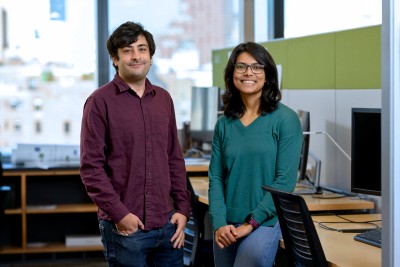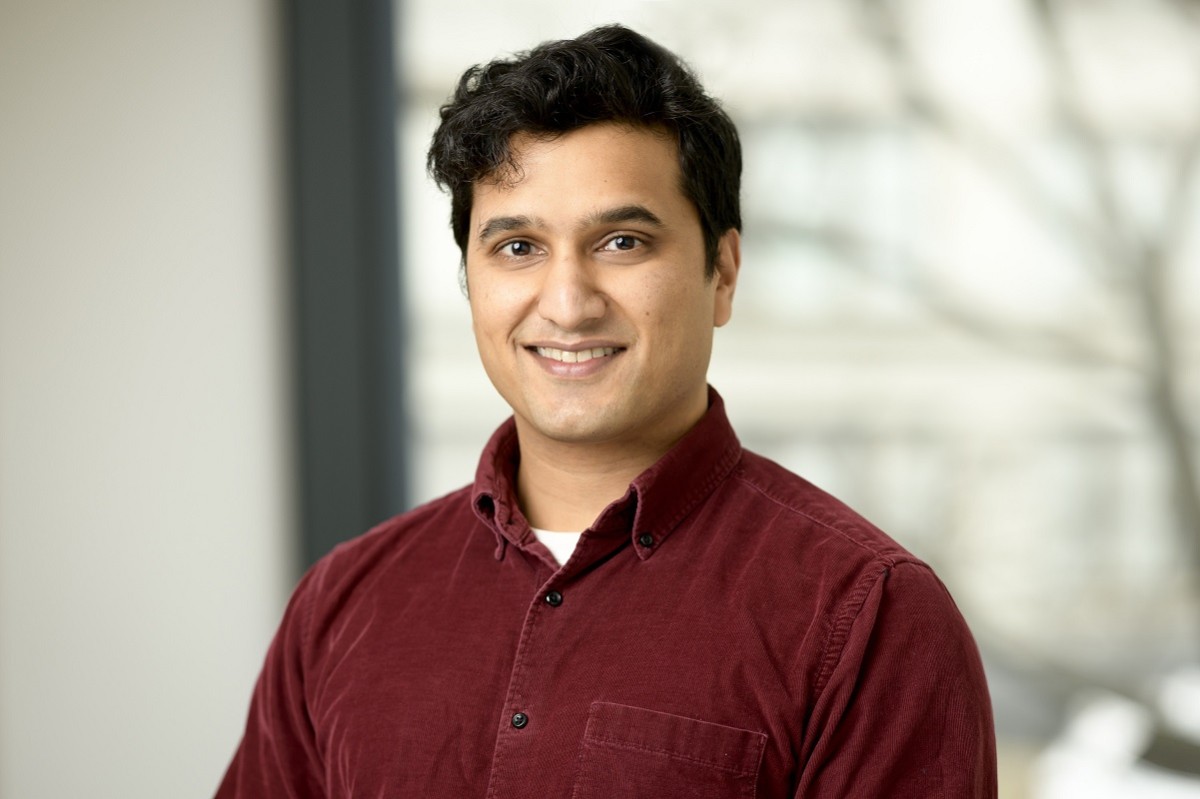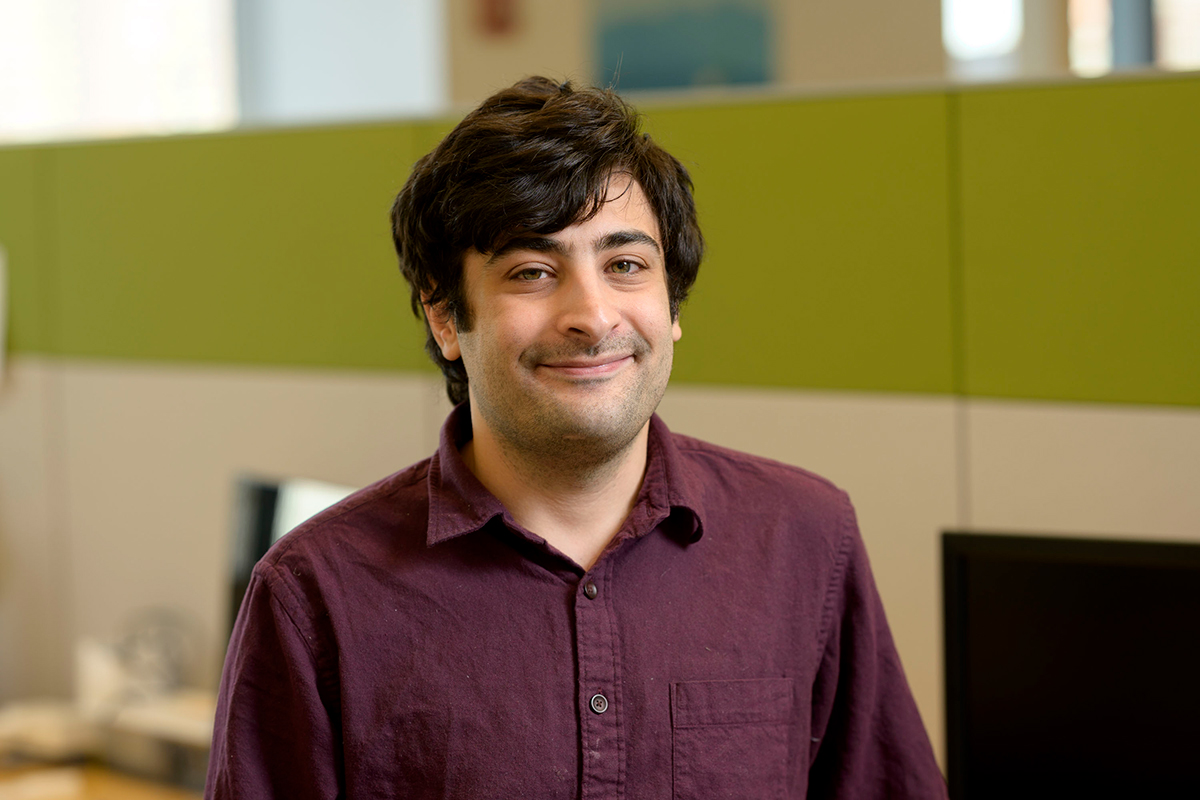
The Marie-Josée Kravis Fellowship in Quantitative Biology at the Sloan Kettering Institute is two-year postdoctoral fellowship that aims to build a new generation of skilled quantitative biologists who specialize in cancer.
The fellowship promotes innovation through a joint mentorship model in which a fellow is assigned to both a “dry lab” devoted to computational science, and a “wet lab” devoted to an area of cancer biology — and supports high-risk, high-impact projects that might otherwise go unfunded.
About the Fellowship
The fellowship provides up to $102,000 per year — including a $73,000 salary plus benefits, and additional funding for conference travel and research expenses.
Applicants will identify two mentors from across Memorial Sloan Kettering Cancer Center’s research programs — a computational scientist and a bench scientist — to oversee a research project applying quantitative methods to an important topic in cancer.
Eligibility
- The fellowship is open to postdoctoral researchers focusing on quantitative biology and cancer research who have been a postdoc for less than two years.
- Trainees must hold an advanced degree — MD, PhD, MD/PhD, DO or equivalent — with a specialization in data science or computational science.
- Chosen mentors must have a proven track record of discovery in their own lab related to this area of research.
- There are no citizenship or residency restrictions.
A Growing Field
This unique position complements and strengthen MSK’s traditional laboratory and clinical research, and there is enormous potential for fellows to drive translational discovery.
Demand for gifted quantitative biologists is high and spans across many industries. And quantitative biologist who specializes in cancer are even harder to find.
The ability to efficiently navigate and analyze massive quantities of information can yield deep insights into how cancer grows and spreads — and how to fight it.
Computational biologists combine an understanding of intricate biological processes with expertise in quantitative approaches, data science, and algorithms. In the context of cancer research, they use advanced statistical, mathematical, and computing methods to simulate the behavior of living organisms from the molecular level up through the whole being, creating models that can make useful predictions about the development and behavior of cancer.
This award is designed to build a new generation of skilled quantitative biologists who specialize in cancer by recruiting and training top talent at MSK. Targeting quantitative scientists with training in mathematics, computer science, physics, engineering, or other related disciplines.
The fellowship was founded in 2021 through the support of Marie-Josée and Henry R. Kravis. Their generosity and leadership is exemplified by Marie-Josée Kravis’ service as Vice Chair of the Board of MSK and Chair of the Board at the Sloan Kettering Institute. Over the years, the Kravis’s have directed their support toward the future of cancer research as well as to the immediate, practical concerns of researchers.
For questions about the fellowship, please contact [email protected].
Marie-Josée Kravis Quantitative Biology Fellows
2025

Mentors: Ruslan Soldatov and Karuna Ganesh
Project: Colitis-associated colorectal cancer provides a paradigm for studying the elusive mechanisms by which chronic inflammation drives cancer initiation across epithelial organs. We hypothesize that inflammation-driven remodeling of the tissue ecosystem perpetuates epithelial cell phenotypic plasticity, enabling oncogenic transformation. Using population-scale, multiomic single-cell profiling of tissues and patient-derived organoids, we will develop a deep learning framework to reveal multicellular processes driven by cell-intrinsic disruptions in epithelial fate determination and the surrounding stem-cell niche. We anticipate that this approach will unveil cell-extrinsic drivers that may serve as novel biomarkers for cancer predisposition.
2024

Casandra Burdziak, PhD
Mentors: Dana Pe’er and Charles Sawyers
Project: Besides their ability to grow, survive, and invade tissues throughout the body, cancer cells have an extraordinary ability to adapt their biology, sometimes mimicking the features of tissues un-related to the original tumor. In the prostate, adenocarcinoma may rarely undergo a massive switch to a neuroendocrine state, coinciding with the emergence of therapy resistance. In a collaboration between the Pe’er and Sawyers labs, Dr. Burdziak is investigating the non-genetic mechanisms promoting this transition. Leveraging single-cell technologies which capture cells during transformation, alongside algorithms which associate epigenetic features with gene expression state, this project aims to identify the cellular and molecular drivers of plasticity in the prostate.
2023

Stephen Martis, PhD
Mentors: Benjamin Greenbaum and Santosha Vardhana
Project: T cells have the ability to launch a definitive and durable response to cancer, though such favorable outcomes only occur in a slim minority of patients, even among those treated with immunotherapies like checkpoint blockade. We hypothesize that the effectiveness of the T cell response is “ecologically” driven both by direct interactions with antigen presenting cells and tumor cells and by indirect interactions mediated by the availability of nutrients and costimulatory factors. We propose to formalize these concepts by building and experimentally validating a mathematical model of T cell activation, growth and function that can point to ways to improve the efficacy of cancer immunotherapy.
2022

Sneha Mitra, PhD
Mentors: Christina Leslie, PhD and Alexander Rudensky, PhD
Project: Colorectal cancer (CRC) is the second most common cause of cancer death in the US and immune checkpoint therapy fails as a treatment in most cases. We hypothesize that this failure is linked to the activities and interactions of T cells, which are not yet well understood in the context of CRC. To address that, we will use high-throughput single-cell sequencing methods to analyze the roles of the different T cells that will potentially enable the development of therapies for this disease.
2021

Corey Weistuch, PhD
Mentors: Joseph Deasy, PhD, Allen Tannenbaum, PhD, and Samuel Singer, MD
Project: In collaboration with the Deasy/Tannenbaum Group and the Sarcoma Biology Laboratory, Dr. Weistuch has developed a new algorithm to reconstruct the accumulation of DNA copy number alterations (amplifications/deletions) within a tumor using statistical information gathered from many constituent cells. The approach, while general, has the potential to profoundly impact future treatment by revealing the driving events of liposarcoma, a type of cancer characterized by complex copy number alterations and poor patient outcomes.